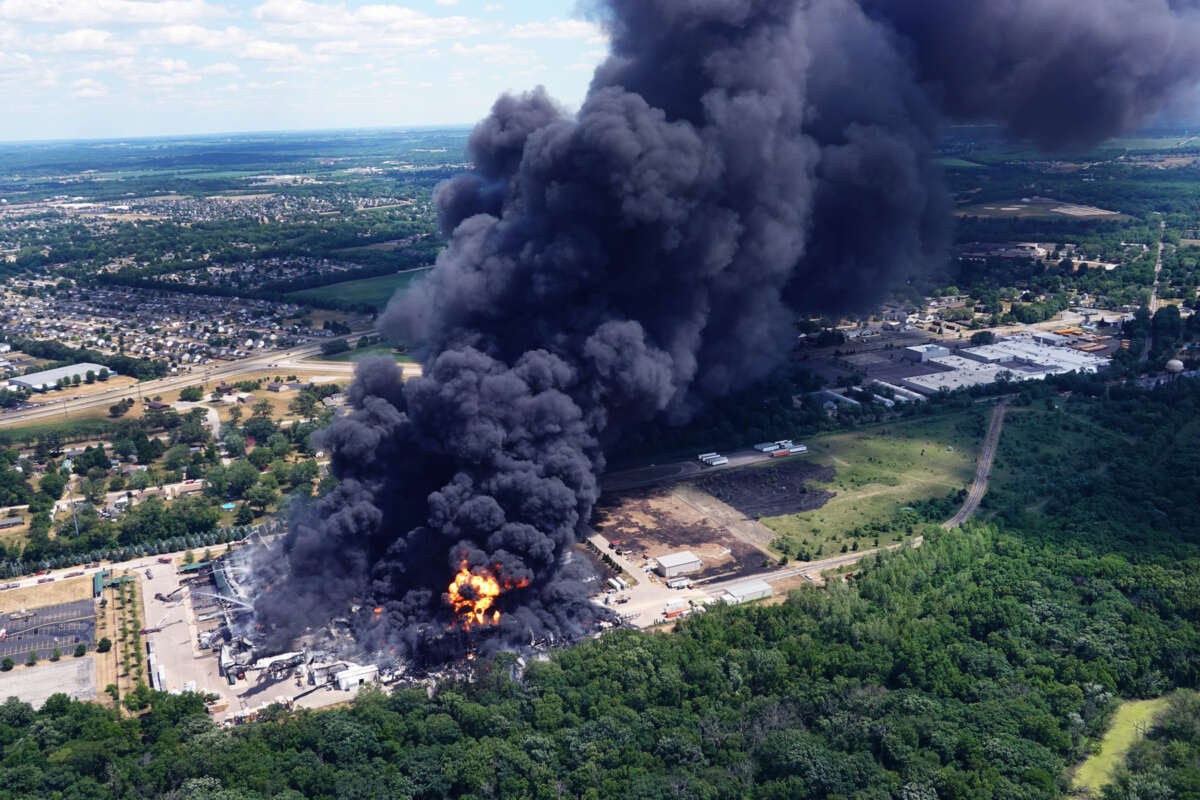Honest, paywall-free news is rare. Please support our boldly independent journalism with a donation of any size.
A ruling in Louisiana by a federal judge appointed by former Republican President Donald Trump will make it even harder for communities to fight environmental racism and the establishment of “sacrifice zones,” said one advocacy group on Tuesday.
U.S. District Court Judge James Cain, Jr., appointed in 2018, ruled in favor of Louisiana eight months after GOP Attorney General Jeff Landry sued the Environmental Protection Agency (EPA), aiming to stop the Biden administration from opening investigations into violations of Title VI under the Civil Rights Act of 1964.
Title VI prohibits recipients of federal funds from discriminating against state residents based on race and national origin, and allows residents to petition the EPA arguing that state agencies have intentionally discriminated or disparately impacted a particular community.
In the U.S. District Court for the Western District of Louisiana, Cain ruled that Title VI requirements amount to “government overreach” and said in the decision that “pollution does not discriminate.”
While pollution itself does not discriminate against communities, numerous studies have shown the impact of environmental injustice and racism.
One paper published in 2022 by Tulane Environmental Law Clinic researchers found that communities of color face 7-21 times the amount of pollution that white communities experience and pointed to so-called “Cancer Alley” — an 85-mile stretch in Louisiana where petrochemical companies have built dozens of plants and medical experts have seen a disproportionate number of cancer cases — as an area that’s faced environmental injustice as a result of the state’s permitting process.
As Prism reported last week, the EPA was close to holding the Louisiana Department of Environmental Quality (LDEQ) accountable for putting the historically Black community of St. John the Baptist Parish at risk last year by greenlighting pollution-causing petrochemical plants near the town in Cancer Alley — but it halted a year-long investigation last June, a month after Landry filed his lawsuit.
At the time, Mary Hampton of Concerned Citizens of St. John told Earthjustice, which had called for the EPA’s investigation on behalf of residents, that the agency’s decision made residents “feel like our lives don’t matter.”
“We are suffering, we are dying,” said Hampton. “That’s a hard thing to deal with.”
On Tuesday, Sam Sankar, senior vice president of programs for Earthjustice, said that Cain’s injunction will allow Louisiana to continue allowing companies to pollute Cancer Alley without considering “disparate environmental impacts.”
“Instead of fixing the discriminatory permitting programs that have created sacrifice zones like Cancer Alley, Louisiana is fighting tooth and nail to keep them in place,” said Sankar. “The public health crisis in St. John the Baptist Parish shows us why we need Title VI: EPA needs to be able to use our civil rights laws to stop states from running permitting programs that perpetuate environmental injustice.”
As The Intercept reported last week, the EPA also backed away from another Title VI case last year — one alleging that the Michigan Department of Environment, Great Lakes, and Energy had violated the law by issuing permits to an asphalt plant in a low-income, majority-Black town where residents were also at increased risk for asthma.
“Experts say that the EPA appears to be shying away from certain Civil Rights Act investigations in states that are hostile to environmental justice, due to fears that Landry’s suit or similar efforts could make their way to the conservative Supreme Court,” wrote Delaney Hogan.
On Tuesday, Hogan suggested Cain’s ruling makes it more likely that the Supreme Court could eventually “crush the EPA’s ability to pursue environmental justice.”
“I think we can all see where this is headed,” said Hogan.
A terrifying moment. We appeal for your support.
In the last weeks, we have witnessed an authoritarian assault on communities in Minnesota and across the nation.
The need for truthful, grassroots reporting is urgent at this cataclysmic historical moment. Yet, Trump-aligned billionaires and other allies have taken over many legacy media outlets — the culmination of a decades-long campaign to place control of the narrative into the hands of the political right.
We refuse to let Trump’s blatant propaganda machine go unchecked. Untethered to corporate ownership or advertisers, Truthout remains fearless in our reporting and our determination to use journalism as a tool for justice.
But we need your help just to fund our basic expenses. Over 80 percent of Truthout’s funding comes from small individual donations from our community of readers, and over a third of our total budget is supported by recurring monthly donors.
Truthout has launched a fundraiser, and we have a goal to add 231 new monthly donors in the next 48 hours. Whether you can make a small monthly donation or a larger one-time gift, Truthout only works with your support.
